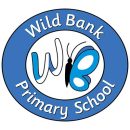At Wild Bank Primary School, we assess pupils using the Development Matters document, Early Learning Goals and the National Curriculum.
Early Years Foundation Stage
In Nursery the children are taught and assessed using the Development Matters document. By the end of the Reception year, the children will be assessed against the Early Learning Goals. It is expected that children leave Reception at the expected level in at least 7 of the 12 ELGs. This is known as a Good Level of Development (GLD)
Within the Foundation Stage, assessments will be observations of the children as they act and interact in their play, activities and planned learning tasks. Teachers use their professional knowledge of the pupil to decide which areas of learning best fits the child’s learning and development.
Key Stage 1 and 2
In Key stage 1 and 2 the children are taught and assessed using the National Curriculum.
The National Curriculum for Maths, English and Science (Core Subjects) is broken down into year groups and objectives are tracked. Termly assessments are completed to support teacher judgements.
The National Curriculum for all other subjects is in phases: KS1, LKS2 and UKS2. We have created a curriculum which then breaks these objectives down into year groups and children are assessed against the objectives for their year group.
At the end of Year 1, children’s phonic knowledge is assessed in relation to a national standard. Children who do not meet the national standard will be re-tested in Year 2.
End of Key Stage 1 assessments take place at the end of Year 2 through teacher assessments and the use of standardised assessment tests and tasks (SATs) in English (speaking and listening, reading and writing), Maths and Science.
The children in Year 4 will complete the multiplications tables online. This ensures their times table knowledge is at the expected level.
At the end of end of Key Stage 2, children also sit SATs, which are externally marked and accompany teacher assessment levels. These SATs tests are for Reading, Spelling, Punctuation and Grammar and Maths. The children’s writing is teacher assessed and we work closely within our Trust and Cluster to moderate our assessments.
We assess children formally and informally throughout their time at Wild Bank. This provides teachers with clear information when planning appropriate work, and enables them to give feedback to the children and their parents and carers about each child’s individual attainment and progress. Assessment also enables teachers to set short and longer term targets for children to move forward in their learning. End of Key Stage assessments also inform the transition process within the school and as children transfer to their secondary schools.
The Assessment for Learning approach permeates all areas of the curriculum with children and staff referring to learning intentions and success criteria within lessons. We encourage children to have a growth mindset so they have a true self belief that they can control their own ability and can learn and improve. Praising hard work, effort and persistence are important. Children have the opportunity for self and peer evaluation and are encouraged to reflect on their learning in each lesson and consider their next steps.
Children are more formally assessed at key points during each term of the school year to provide baseline information in the Early Years or on entry and to identify progress and areas for development. Assessments are carefully tracked to ensure children’s progress is consistently good and to identify any need for further intervention or support.
We analyse these end of Key Stage assessments carefully against local and national results and use this analysis to raise our standards and expectations further and to highlight any areas that may need particular attention within our curriculum provision
